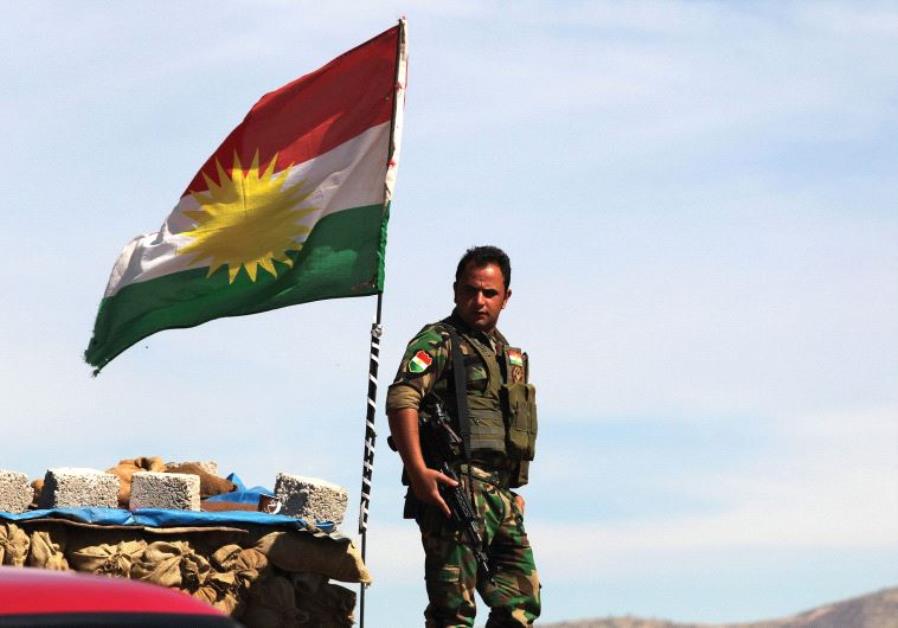Kurds in northern Iraq want U.S. to stay in region

As you can imagine, more people are reading The Jerusalem Post than ever before. Nevertheless, traditional business models are no longer sustainable and high-quality publications, like ours, are being forced to look for new ways to keep going. Unlike many other news organizations, we have not put up a paywall. We want to keep our journalism open and accessible and be able to keep providing you with news and analysis from the frontlines of Israel, the Middle East and the Jewish World.
The US should stay in Iraq to prevent an ISIS resurgence, officials in the autonomous Kurdistan Region stressed in recent weeks.
As the US holds a meeting on regional security in Poland, and as the presidents of Russia, Iran and Turkey gather in Sochi, the threat of ISIS continues in Iraq.
Kurdistan Region Prime Minister Nechirvan Barzani said in late January that US troops should stay in Iraq until the ISIS threat is fully eliminated. Officials have continued to reach out to the US since then, to argue that the ISIS threat remains and the US is needed in Iraq.
The Kurds in northern Iraq supported the US presence and have been close allies of the US in past years dating back to the 1990s. The US and the anti-ISIS coalition invested in training the Kurdish Peshmerga during the war on ISIS. A special base was set up in the KRG’s capital of Erbil and a funding mechanism was set up to directly support the KRG’s forces during the war on ISIS. The KRG felt that the US withdrawal in 2011 was premature and the rise of ISIS proved that Erbil’s concerns were correct.
The ISIS threat continues, say the Kurds, because it has managed to hide among rural civilian populations, particularly in areas between the Kurdistan region and Iraqi central government forces. The Kurds believe the US should stay and continue to invest in training as well as coordination between the Peshmerga and Federal forces in Baghdad to help reduce the ISIS threat in areas between the autonomous region and the government.
Voices in Baghdad, particularly among pro-Iranian Shi’ite militias (some of whom have political parties in parliament) have increased their calls for the US to leave. These voices have gained traction in the wake of US President Donald Trump’s comments in December and January saying that the US would be watching Iran from Iraq. “When the mission of these [US] forces is to fight a neighboring country, like Iran for example, we reject that notion,” Iraqi Prime Minister Adil Abdul-Mahdi said. “There are no American military bases in Iraq, we have said that more than once,” he stressed, noting that US forces that are in Iraq are there at the invitation of the government under a Status of Forces Agreement with Baghdad.
The problem is that while some in Baghdad want to portray the US as using Iraqi soil against Iran, there is a very real ISIS threat that continues despite the defeat of the organization in Syria. Experts say ISIS may have 10,000 loyal fighters in Iraq, and Gen. Joseph Votel, the US commander, said on Monday that there are tens of thousands of ISIS fighters dispersed in Iraq and Syria.
In comments reprinted by the Kurdish channel Rudaw, Barzani notes that “ISIS is no longer an organization in control of big cities” but “ISIS is not finished in this country.” He said that the presence of America troops should continue. “What stopped and ended ISIS was the support of the coalition forces, chief among them the United States.”
On Wednesday, Iraq’s prime minister said that the government in Baghdad would obey parliament if it voted to end the US presence in Iraq. Many Shi’ite political parties, such as Muqtada al-Sadr’s Sairoon alliance and the Fatih party that came in second in elections last year, oppose US forces remaining in Iraq. But Iraq wants to hedge its bets. Fatih parliament member and spokesman Ahmed Al-Assady said on Tuesday that US forces are still providing logistical and air support and that the US forces are not an enemy of Iraq. He said parliament would discuss the US presence when it reconvenes.